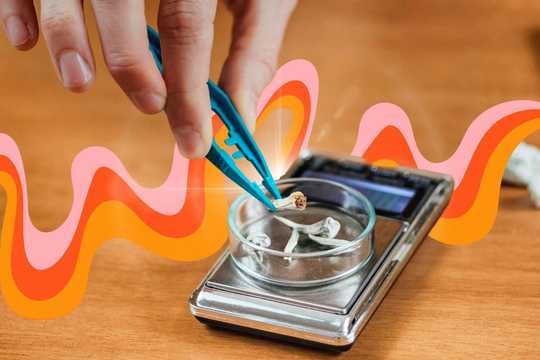When most Americans hear the word “ketamine” they either think of horse-tranquilizers or party drugs. But ketamine has grown a following of enthusiastic practitioners and patients in the last few years, and with good reason. It’s given relief to thousands of people with diagnoses from depression to chronic pain. Learn more about who can benefit from Ketamine Therapy?
Ketamine for mental health is administered under two different models: Infusion only or combined with Therapy.
Ketamine infusion practitioners are typically anesthesiologists and CRNAs (Certified Registered Nurse-Anesthetists). Infusions are typically offered in a clinic or pain center setting, and patients usually don’t have an ongoing relationship with their provider outside of infusion appointments.
Ketamine therapy is usually delivered by licensed therapists, and integrates psychotherapy with a ketamine regimen. The ketamine therapy model not only re-wires the brain, but the mind as well. We believe that psychotherapy and ketamine is the best way to combine the psychedelic experience of ketamine for the best chance at long-term solutions for mental health.
Ketamine works through synaptogenesis, or creating new neural pathways. While SSRI’s work by stimulating neurotransmitter activity, ketamine actually repairs damage. It’s also thought to reduce inflammation which can contribute to mood disorders [1, 2]. Let’s talk about what diagnoses have been most responsive to ketamine therapy.
Follow your Curiosity
Sign up to receive our free psychedelic courses, 45 page eBook, and special offers delivered to your inbox.Ketamine Therapy for Treatment-Resistant Depression
Depression is a leading cause of worldwide disability [3]. Up to a third of people with depression do not respond to one or more treatments [4]. Psychotherapy and psychopharmacology often take months to work, if patients ever even find success with these methods. Trial-and-error medication management can leave patients adrift and hopeless.
These patients are at an increased risk for self-harm and suicide. About a third of patients with TRD will attempt suicide at some point in life [5]. This group of patients is often unstable, and need faster intervention than psychotherapy and medication can allow.
Ketamine therapy can provide much faster relief for patients with TRD. It works by repairing damage in the brain made by cortisol and other stress hormones. It also brings down inflammation, which could be a cause of mood disorders [6]. By acting quickly and effectively, ketamine can be a bridge treatment for people with TRD.
Ketamine Therapy for Anxiety
Anxiety rates have increased substantially over the course of the COVID-19 pandemic, as our population deals with more uncertainty and stress [7]. We now believe anxiety originates from overactive brain circuits that fire off despite a lack of stimulus [8]. By forming new connections in the brain, ketamine could be a better solution for people with general and social anxiety.
There’s less evidence currently for ketamine and anxiety, but the research we do have is very promising. In a systematic review of ketamine treatments for anxiety, four out of six trials found significant benefits for ketamine compared to placebo treatment [9].
One 2018 study compared ketamine with midazolam (versed) [10]. Patients completed a fear questionnaire and underwent electroencephalogram studies. Ketamine decreased frontal theta waves, which are thought to be active during executive functioning and task performance. By doing so, ketamine brought down the intensity of phobic thoughts and decreased patient’s fear questionnaire results.
Some evidence even shows that Ketamine could increase resilience to stress, as shown in rats [11]. As our population deals with more uncertainty, ketamine could help us manage and treat anxiety.
Ketamine for Patients with PTSD
Almost 9% of Americans suffer from PTSD [12]. It remains a debilitating illness for survivors of trauma and veterans, and significantly contributes to disability. Combined psychotherapy and anti-depressant medications may offer some relief, but ketamine could give patients with PTSD more immediate breakthroughs.
Some researchers believe that the distressing thoughts and memories in PTSD may come from changes in synaptic activity. Ketamine’s ability to build new synaptic connections could provide long-term relief for people with PTSD [13]. Ketamine-assisted psychotherapy works in a similar way to MDMA therapy where the substance helps the person process traumatic memories during therapeutic sessions.
When compared to midazolam, ketamine has performed better at treating PTSD. It’s effects are also generally longer, and improve depressive symptoms as well as flashbacks [14]. Ketamine could provide relief to our veteran population, who has been failed by traditional mental health treatments.
Ketamine Therapy for Bipolar Disorder
Ketamine could be a useful stabilizer for patients with acute bipolar disorder. Patients with bipolar disorder have the highest risk of suicidality across the lifespan [15]. Like in TRD, ketamine could significantly reduce suicidal ideation in this population.
Research has given good support for ketamine’s ability to stabilize bipolar depressive swings. A systematic review with bipolar patients found that one dose of ketamine decreased suicidal ideation within a day [16].
Aside from alleviating suicidality, ketamine could treat bipolar disorder in several ways. It’s believed to increase neuroplasticity, as well as synapse growth. There’s also some limited evidence that it could decrease inflammation and prevent autoimmune diseases, which are prevalent in patients with bipolar. It could even prevent depressive swings by increasing good gut flora [17].
Ketamine’s stabilizing ability could give needed relief to this underserved population.
Ketamine Therapy for Chronic Pain
In the intraoperative setting, ketamine is already being used to prevent chronic postoperative pain, particularly in those with opioid tolerance [18]. At low doses, it’s also effective for treating chronic neuropathic pain [19].
Unlike other pain management methods like opioids, ketamine doesn’t cause physical dependence. However, it can still become psychologically addictive if taken frequently. Ketamine therapy could also yield more long-term pain relief than other medications by helping the patient cope better with what they are experiencing.
The duration of pain relief from ketamine varies. Relief can be short-term, only as long as the infusion lasts. Some evidence shows that prolonged ketamine infusion could give relief for up to three months [19].
While the basic infusion method is typically used to treat chronic pain with ketamine, combined psychotherapy could be a better option. Cognitive-behavioral therapy has been rigorously researched in its ability to treat chronic pain [20]. By combining physiological relief with psychological support, we can give lasting pain management for people suffering from chronic pain.
Who is ketamine therapy not appropriate for?
Ketamine is not indicated for patients in acute mania or active psychosis. The psychedelic effects of ketamine can elevate these unstable mental states.
It’s also not good for patients with unstable cardiovascular disease, because it elevates heart rate and blood pressure. This stress on the heart muscles could exacerbate heart problems [21].
Patients with a history of opioid and alcohol addiction should also be aware of the risk for ketamine abuse. Since ketamine therapy happens under the direct supervision of a medical provider, the risk of addiction is relatively low in medical settings. However, patients who have struggled with abuse could be triggered by ketamine infusion.
Unfortunately, right now ketamine is also not practically appropriate for patients who can’t afford it’s steep costs. Ketamine infusions and therapy are for the most part not covered by insurance, so patients are having to shell out what is often hundreds of dollars per session.
Despite its widespread use, we still have a lot to learn about best practices for ketamine therapy. Route of administration, timing, dosage, and treatment frequency likely have big effects on outcomes [22]. With time, we’ll know more about how to best administer ketamine to meet the needs of specific patients and their diagnoses.� Ketamine training for physicians and mental health providers is essential for safe and effective use.
Despite evidence for ketamine and a lot of anecdotal support from patients, there’s still resistance to this substance that is still associated with abuse. With more clinical research, we hope to better understand ketamine and its ability to help people with mental health diagnoses.
If you’re enrolled in ketamine therapy, learn more about how to get the most out of your ketamine experience. Practitioners who are interested in adding ketamine therapy to their practice can check out our online ketamine course.
References:
- Zunszain, P. A., Horowitz, M. A., Cattaneo, A., Lupi, M. M., & Pariante, C. M. (2013). Ketamine: synaptogenesis, immunomodulation and glycogen synthase kinase-3 as underlying mechanisms of its antidepressant properties. Molecular psychiatry, 18(12), 1236–1241. https://doi.org/10.1038/mp.2013.87
- Verdonk F, Petit AC, Abdel-Ahad P, Vinckier F, Jouvion G, de Maricourt P, De Medeiros GF, Danckaert A, Van Steenwinckel J, Blatzer M, Maignan A, Langeron O, Sharshar T, Callebert J, Launay JM, Chrétien F, Gaillard R. Microglial production of quinolinic acid as a target and a biomarker of the antidepressant effect of ketamine. Brain Behav Immun. 2019 Oct;81:361-373. doi: 10.1016/j.bbi.2019.06.033. Epub 2019 Jun 28. PMID: 31255681.
- World Health Organization. (n.d.). Depression. World Health Organization. Retrieved January 27, 2022, from https://www.who.int/news-room/fact-sheets/detail/depression
- Al-harbi. Treatment-resistant depression: therapeutic trends, challenges, and future directions. Patient Prefer Adherence. 2012;6:369-388, https://doi.org/10.2147/PPA.S29716
- Bergfeld IO, Mantione M, Figee M, Schuurman PR, Lok A, Denys D. Treatment-resistant depression and suicidality. J Affect Disord. 2018 Aug 1;235:362-367. doi: 10.1016/j.jad.2018.04.016. Epub 2018 Apr 3. PMID: 29665520.
- Zunszain, P. A., Horowitz, M. A., Cattaneo, A., Lupi, M. M., & Pariante, C. M. (2013). Ketamine: synaptogenesis, immunomodulation and glycogen synthase kinase-3 as underlying mechanisms of its antidepressant properties. Molecular psychiatry, 18(12), 1236–1241. https://doi.org/10.1038/mp.2013.87
- Centers for Disease Control and Prevention. (2021, October 7). National and state trends in anxiety and depression severity scores among adults during the COVID-19 pandemic – United States, 2020–2021. Centers for Disease Control and Prevention. Retrieved January 27, 2022, from https://www.cdc.gov/mmwr/volumes/70/wr/mm7040e3.htm
- Nuss P. (2015). Anxiety disorders and GABA neurotransmission: a disturbance of modulation. Neuropsychiatric disease and treatment, 11, 165–175. https://doi.org/10.2147/NDT.S58841
- Whittaker, E., Dadabayev, A. R., Joshi, S. A., & Glue, P. (2021). Systematic Review and meta-analysis of randomized controlled trials of ketamine in the treatment of refractory anxiety spectrum disorders. Therapeutic Advances in Psychopharmacology, 11, 204512532110567. https://doi.org/10.1177/20451253211056743
- Shabah Mohammad Shadli, Tame Kawe, Daniel Martin, Neil McNaughton, Shona Neehoff, Paul Glue, Ketamine Effects on EEG during Therapy of Treatment-Resistant Generalized Anxiety and Social Anxiety, International Journal of Neuropsychopharmacology, Volume 21, Issue 8, August 2018, Pages 717–724, https://doi.org/10.1093/ijnp/pyy032
- Brachman RA, McGowan JC, Perusini JN, Lim SC, Pham TH, Faye C, Gardier AM, Mendez-David I, David DJ, Hen R, Denny CA. Ketamine as a Prophylactic Against Stress-Induced Depressive-like Behavior. Biol Psychiatry. 2016 May 1;79(9):776-786. doi: 10.1016/j.biopsych.2015.04.022. Epub 2015 May 4. PMID: 26037911; PMCID: PMC4633406.
- American Psychiatric Association. Diagnostic and Statistical Manual of Mental Disorders: DSM-5. Washington, DC: American Psychiatric Association; 2013.
- Krystal JH, Abdallah CG, Averill LA, Kelmendi B, Harpaz-Rotem I, Sanacora G, Southwick SM, Duman RS. Synaptic Loss and the Pathophysiology of PTSD: Implications for Ketamine as a Prototype Novel Therapeutic. Curr Psychiatry Rep. 2017 Aug 26;19(10):74. doi: 10.1007/s11920-017-0829-z. PMID: 28844076; PMCID: PMC5904792.
- Feder A, Parides MK, Murrough JW, Perez AM, Morgan JE, Saxena S, Kirkwood K, Aan Het Rot M, Lapidus KA, Wan LB, Iosifescu D, Charney DS. Efficacy of intravenous ketamine for treatment of chronic posttraumatic stress disorder: a randomized clinical trial. JAMA Psychiatry. 2014 Jun;71(6):681-8. doi: 10.1001/jamapsychiatry.2014.62. PMID: 24740528.
- Abreu LN, Lafer B, Baca-Garcia E, Oquendo MA. Suicidal ideation and suicide attempts in bipolar disorder type I: an update for the clinician. Braz J Psychiatry. 2009 Sep;31(3):271-80. doi: 10.1590/s1516-44462009005000003. Epub 2009 Aug 7. PMID: 19787156.
- Wilkinson ST, Ballard ED, Bloch MH, Mathew SJ, Murrough JW, Feder A, Sos P, Wang G, Zarate CA Jr, Sanacora G. The Effect of a Single Dose of Intravenous Ketamine on Suicidal Ideation: A Systematic Review and Individual Participant Data Meta-Analysis. Am J Psychiatry. 2018 Feb 1;175(2):150-158. doi: 10.1176/appi.ajp.2017.17040472. Epub 2017 Oct 3. PMID: 28969441; PMCID: PMC5794524.
- Wilkowska, A., Szałach, Ł., & Cubała, W. J. (2020). Ketamine in Bipolar Disorder: A Review. Neuropsychiatric disease and treatment, 16, 2707–2717. https://doi.org/10.2147/NDT.S282208
- Clark, J. D. (2020). Ketamine for chronic pain: Old drug new trick?. Anesthesiology, 133(1), 13-15. https://doi.org/10.1097/ALN.0000000000003342
- Niesters M, Martini C, Dahan A. Ketamine for chronic pain: risks and benefits. Br J Clin Pharmacol. 2014 Feb;77(2):357-67. doi: 10.1111/bcp.12094. PMID: 23432384; PMCID: PMC4014022.
- Majeed, M. H., Ali, A. A., & Sudak, D. M. (2018). Psychotherapeutic interventions for chronic pain: Evidence, rationale, and advantages. The International Journal of Psychiatry in Medicine, 54(2), 140–149. https://doi.org/10.1177/0091217418791447
- Goddard, K., Sampson, C., Bedy, S.-M., Ghadban, R., & Stilley, J. (2021). Effect of ketamine on cardiovascular function during procedural sedation of adults. Cureus.https://doi.org/10.7759/cureus.14228
- Andrade, C. (2017). Ketamine for depression, 4: In what dose, at what rate, by what route, for how long, and at what frequency? The Journal of Clinical Psychiatry, 78(7). https://doi.org/10.4088/jcp.17f11738







